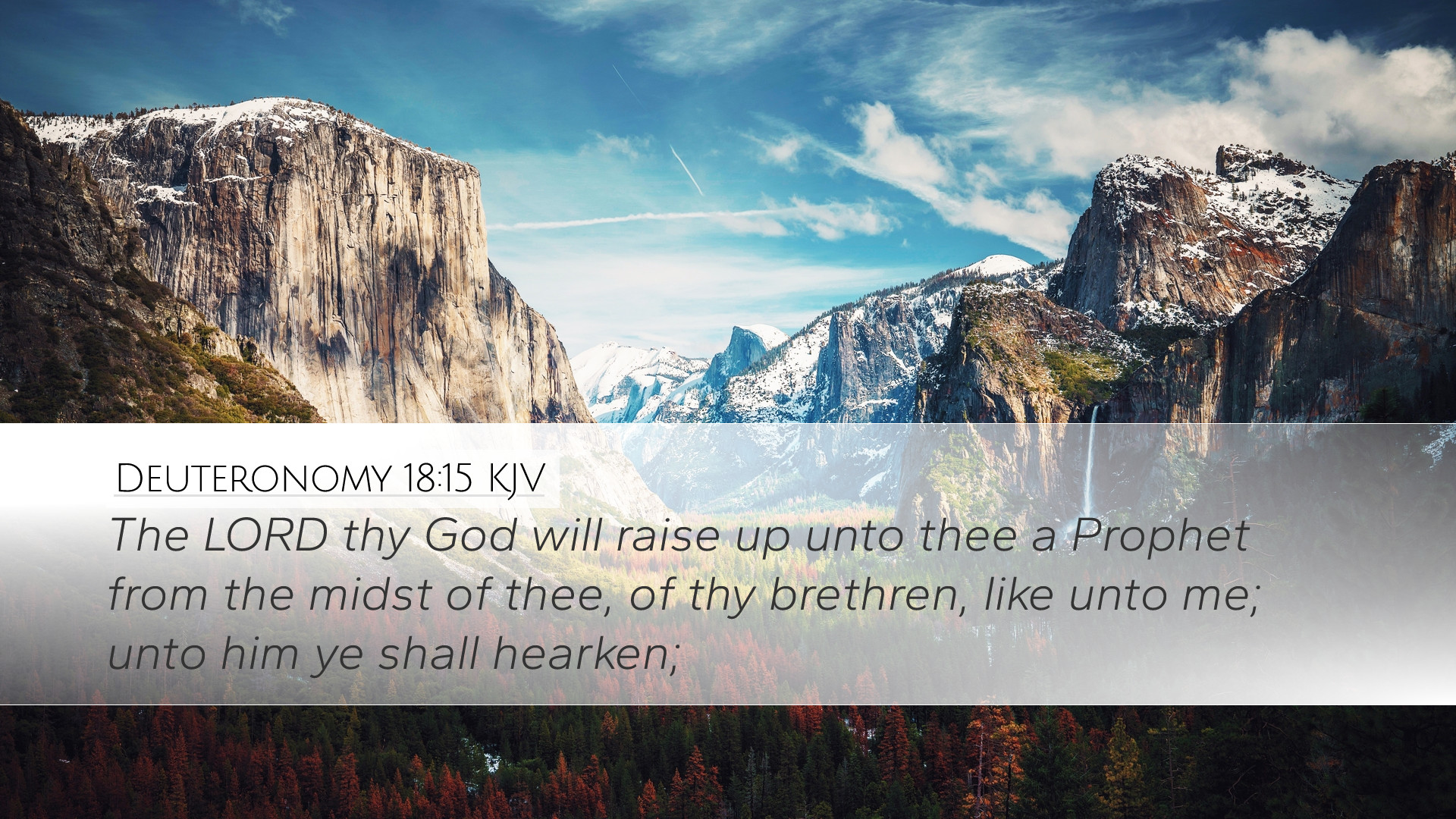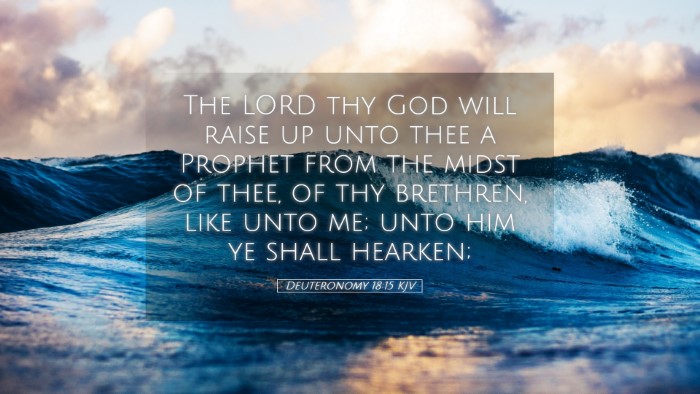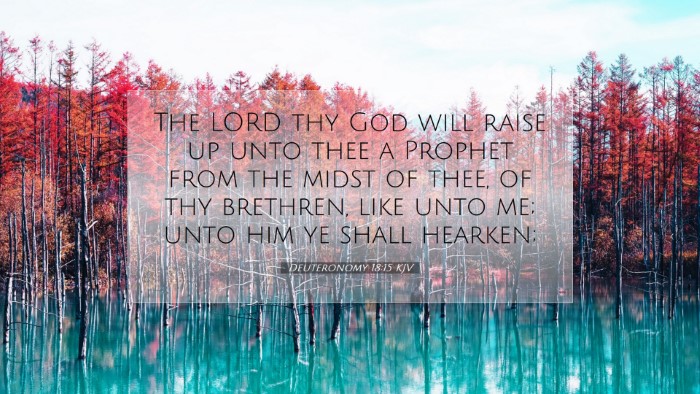Commentary on Deuteronomy 18:15
Verse: "The LORD your God will raise up for you a prophet like me from among you, from your brothers—it is to him you shall listen."
Introduction
This verse is a pivotal prophecy within the Old Testament, anticipating the coming of a prophet who would guide and instruct the people of Israel. It holds profound implications for both the Jewish faith and the Christian doctrine, especially in the understanding of Jesus Christ as the ultimate prophet.
Historical Context
Deuteronomy is often seen as Moses' farewell address to the Israelites as they prepare to enter the Promised Land. In this context, he is not only exhorting them to remain faithful to God's laws but also providing assurance of divine guidance following his departure. The expectation of a prophet reveals the ongoing relationship between God and His people.
Moses as the Precursor
Moses stands as the archetypal prophet in Israel’s history, mediating God’s will and leading the people out of Egypt. Matthew Henry notes that the role of a prophet is not merely to foretell future events but to advocate the truths of God and guide the community in righteousness. The comparison to Moses emphasizes both continuity and progression in God's revelation.
Characteristics of the Prophet
- Divine Appointment: The prophet is raised by "the LORD your God," signifying that true prophets are divinely ordained.
- From Among the People: This indicates that the prophet will be relatable and accessible, akin to Moses, who was himself a Hebrew.
- Authority to Listen: The command to "listen" establishes the prophet's authority, suggesting that he will provide essential divine guidance.
Analysis from Public Domain Commentaries
Matthew Henry’s Commentary
Henry emphasizes the significance of the phrase "a prophet like me." He interprets this as indicative of the unique role that Moses played and highlights that the coming prophet would also be a teacher and lawgiver. Henry warns, however, about the dangers of false prophets and the necessity for the people to discern truth from error.
Albert Barnes’ Notes on the Bible
Barnes focuses on the Messianic implications of this verse, seeing Christ as the fulfillment of this prophecy. He discusses how the expectation of a new prophet is realized in the life and ministry of Jesus, who embodies the qualities attributed to Moses while also fulfilling a greater purpose. Barnes suggests that Jesus’ teachings and authority align profoundly with God’s original law, offering redemption and a deeper understanding of divine will.
Adam Clarke’s Commentary
Clarke provides a comprehensive look at the original Hebrew terminology and the nuances of the phrase "raise up," which is closely linked to the concept of God’s active role in providing guidance. He notes that this indicates God's persistent engagement with humanity, longing for them to receive instruction and correction through chosen leaders.
Theological Reflections
This prophecy is foundational for understanding not only the expectation of a prophet within the Jewish faith but also the overarching narrative of redemption that culminates in Christ. The call to listen to the prophet is a call to obedience, a recurring theme throughout the Scriptures, emphasizing that true discipleship involves faithful listening and responsiveness to God's word.
Practical Implications for Today’s Believers
- Listening to God's Voice: Each believer is called to discern and respond to God's leading, both through Scripture and through the teachings of faithful leaders.
- Recognizing True Prophets: In an age of numerous voices vying for attention, this verse reminds us to seek those who align with biblical truth.
- Embodying Prophetic Witness: Believers are invited to participate in prophetic ministry by speaking truth and living out God’s law in their communities.
Conclusion
Deuteronomy 18:15 stands as a crucial declaration of God's intention to provide guidance through divinely appointed leaders. The prospect of a prophet like Moses introduces a profound theological framework that enriches both Jewish and Christian understandings of prophecy, authority, and obedience to God. As we reflect on this verse, we are urged to listen attentively and respond faithfully to God’s ongoing revelation through His prophets and ultimately, through Jesus Christ.


